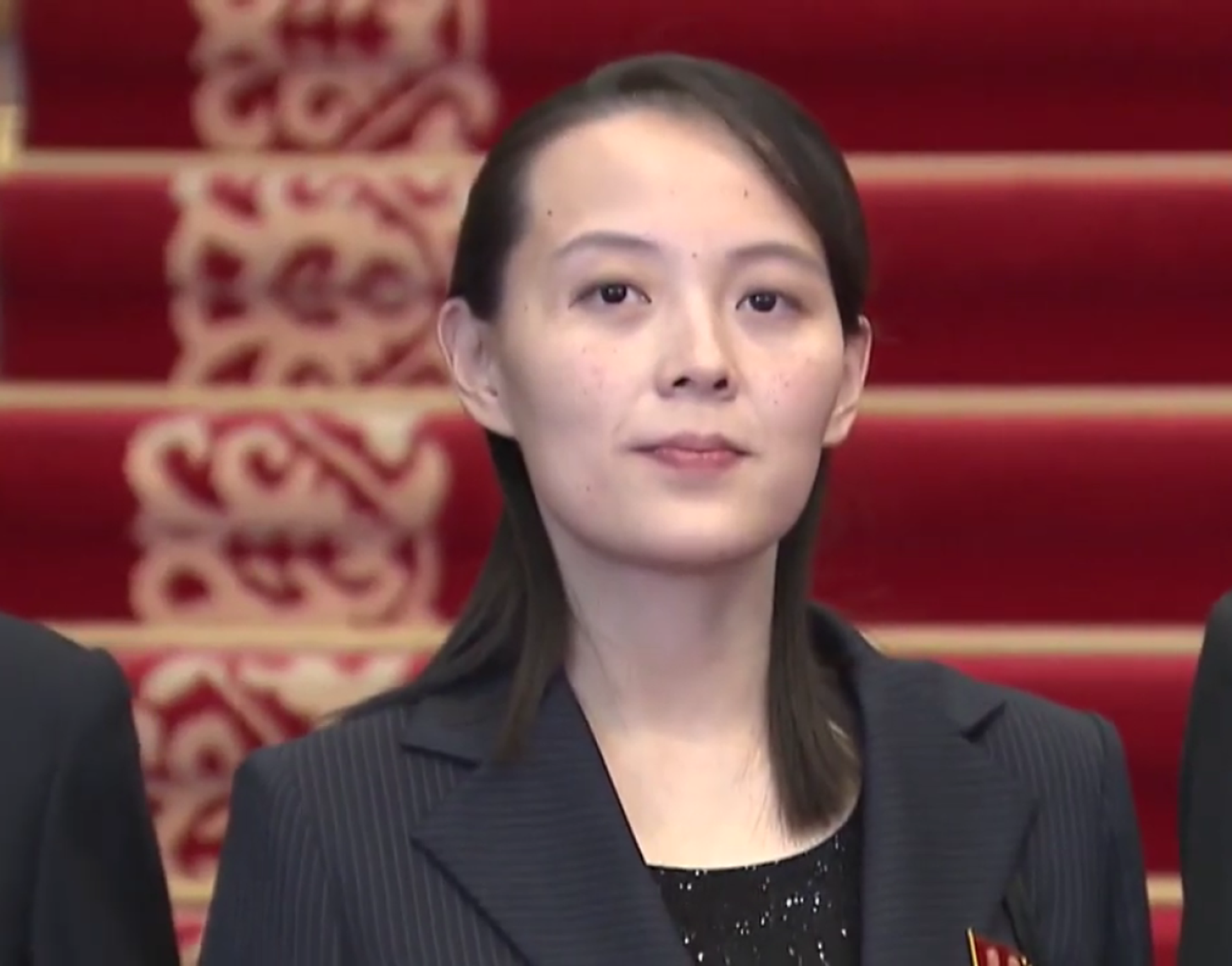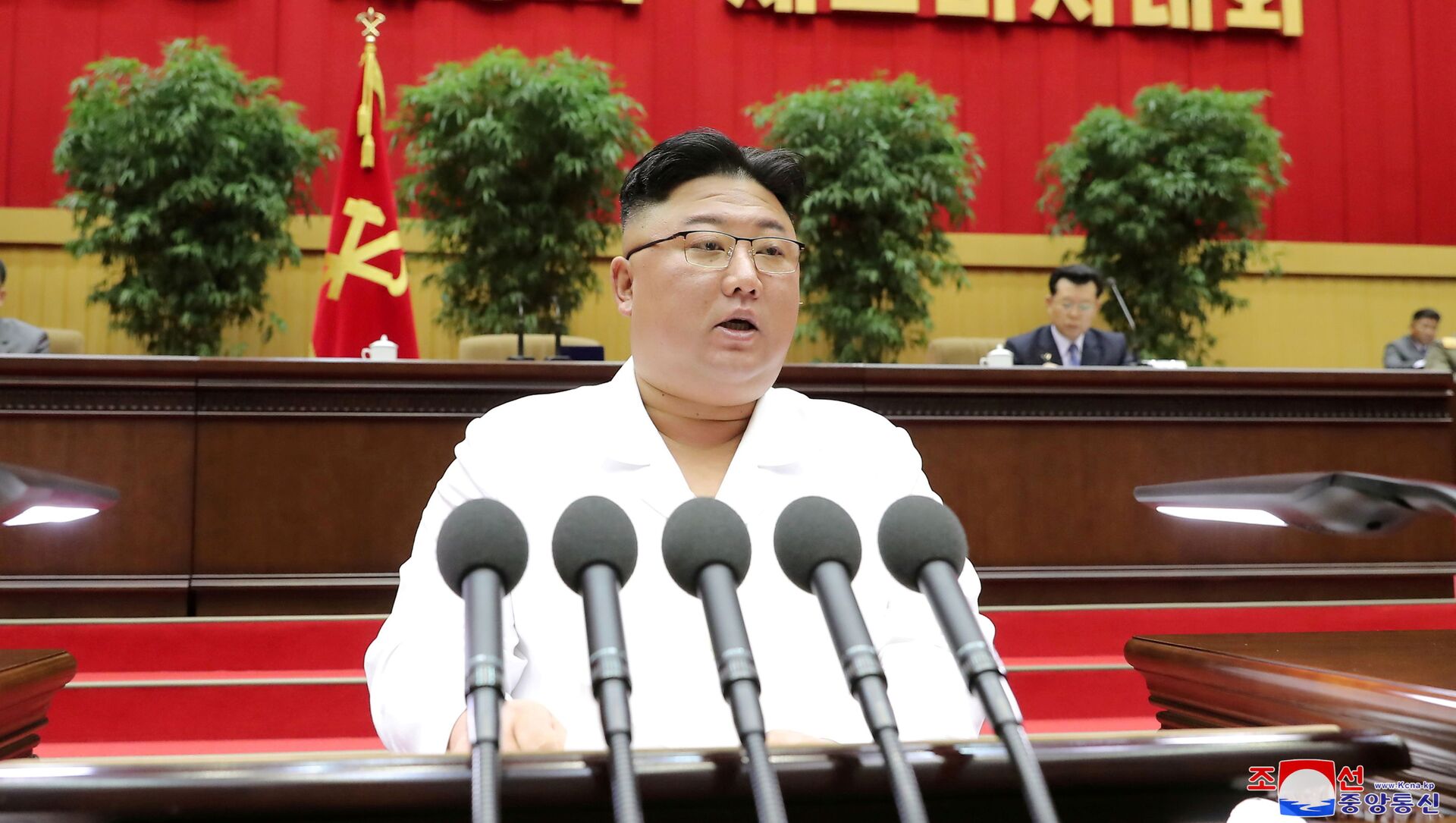"In case of an emergency, including those involving leader Kim's health, Kim Yo Jong is likely to take up this deputy position and act temporarily as the successor until power is handed over to Kim Jong-un's son," former Unification Minister Lee Jong-seok told reporters during an online briefing Tuesday according to Yonhap.
According to CBS News Lim Eul-chul, a professor at Kyungnam University's Graduate School of North Korean Studies, believes that even though Kim may have trusted his sister with several key responsibilities, Kim Yo Jong might not be considered for the role because she doesn’t hold a high enough ranking in the party.
In the briefing, Lee maintained that a high ranking member of the Politburo, Jo Yong Won, who is considered a close aide to Kim Jong Un, was also cited as a possible candidate. However, Lee hinted that consideration for the role would focus on staying within the Kim family.
"We cannot completely rule out the possibility of Jo, but the deputy post appears to be aimed more at securing regime stability for the successor," he said.
Jo is seen as holding the Democratic People’s Republic of Korea (DPRK) government's number three position, after leader Kim Jong Un and Choe Ryong Hae, chairman of the Standing Committee of the Supreme People's Assembly. Another person who has been cited for the position is Kim Tok Hun, who is currently serving as premier of the nation.
The person elected to the position will be able to preside over key party meetings on behalf of Kim Jong Un and the second-in-command would take over should the current leader die or become incapacitated, though this claim has not yet been verified.
Rachel Minyoung Lee, a fellow with 38 North, US-based North Korean satellite surveillance website operated by the Stimson Center think tank in Washington, DC, told Reuters that “this seems to be the broader trend of North Korea delegating and redistributing some of Kim Jong Un's duties to others, not necessarily his powers, and streamlining the party leadership structure.”

According to CBS News, Cheong Seong-chang, the director of the center for North Korean Studies at the Sejong Institute, said that this move shows North Korea’s confidence as a standing global power.
"It is clearly distinct from the policy-making style of his father, Kim Jong Il, who failed to communicate well with party members and the public because he reviewed numerous documents one by one," Cheong said.
The position was created as the party revised its Worker’s Party of Korea rules to include a paragraph that the party's Central Committee should elect a first secretary at the same time Kim Jong Un was elected general secretary of the party.
DPRK also dropped the word "songun," or military-first policy, in the preamble of the revised party rules, which was the main policy that was pursued by Kim Jong Il, the late father of the current leader.
"The term 'military-first politics', a major keyword in the Kim Jong Il era, is known to have been scrapped from the preface of the party by-laws," Reuters reported.
The North also deleted phrasing which stated that the party members "must actively fight to speed up the unification of the fatherland" in elaboration of members’ duties. Some see the change as suggesting that North Korea has given up its push for the unification of North and South Korea, but is instead pursuing co-existence of the two different states on the Korean Peninsula.
The announcement of the position comes roughly a year after international headlines unleashed unconfirmed rumors that Kim Jong Un had undergone emergency heart surgery and fallen gravely ill triggered international headlines.
According to reports from Seoul, the North Korean leader was last seen in public on May 6, when he held a photo session with the members of the military's families following an arts performance.
The administration of US President Joe Biden has so far done very little to encourage diplomacy between the US, North and South Korea amid a nearly two-year impasse. Biden's administration announced last month that diplomat Sung Kim would serve as special representative for the DPRK, but said he has no plans to meet with Kim unless he makes a prior pledge to give up the North Korean nuclear weapons program.
“This was another signal that we are ready and prepared to have dialogue with the DPRK, and we hope that they will take us up on that possibility," Deputy Secretary of State Wendy Sherman said Wednesday in a telephone conference with reporters, voicing hope for DPRK to "take us up on that possibility."


